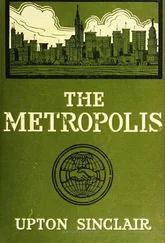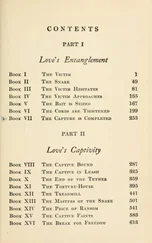Upton Sinclair - Dragons’s teeth
Здесь есть возможность читать онлайн «Upton Sinclair - Dragons’s teeth» весь текст электронной книги совершенно бесплатно (целиком полную версию без сокращений). В некоторых случаях можно слушать аудио, скачать через торрент в формате fb2 и присутствует краткое содержание. Жанр: Историческая проза, на английском языке. Описание произведения, (предисловие) а так же отзывы посетителей доступны на портале библиотеки ЛибКат.
- Название:Dragons’s teeth
- Автор:
- Жанр:
- Год:неизвестен
- ISBN:нет данных
- Рейтинг книги:3 / 5. Голосов: 1
-
Избранное:Добавить в избранное
- Отзывы:
-
Ваша оценка:
- 60
- 1
- 2
- 3
- 4
- 5
Dragons’s teeth: краткое содержание, описание и аннотация
Предлагаем к чтению аннотацию, описание, краткое содержание или предисловие (зависит от того, что написал сам автор книги «Dragons’s teeth»). Если вы не нашли необходимую информацию о книге — напишите в комментариях, мы постараемся отыскать её.
Dragons’s teeth — читать онлайн бесплатно полную книгу (весь текст) целиком
Ниже представлен текст книги, разбитый по страницам. Система сохранения места последней прочитанной страницы, позволяет с удобством читать онлайн бесплатно книгу «Dragons’s teeth», без необходимости каждый раз заново искать на чём Вы остановились. Поставьте закладку, и сможете в любой момент перейти на страницу, на которой закончили чтение.
Интервал:
Закладка:
In the most exquisite of silk-lined bassinets lay the most precious of female infants, with a veil to protect her from over-curious insects. Near by sat a trained nurse, a mature and conscientious Church of England woman. She had two nursemaids under her orders, which were based on the latest discoveries in the physiology and psychology of infants. There was to be no coddling, no kissing, no rocking to sleep of this mite of royalty; there was to be no guesswork and no blundering in its care; no hostile germs were to steal past the barricades which surrounded it, and anyone who showed the least trace of a cold was banished from the premises. Guests and even relatives had to obey the orders of the all-knowing Miss Severne; she was armed with authority to defy even grand- mothers. As for Irma, she had agreed to make the supreme sacrifice; every four hours the precious bundle was to be brought for her nursing, and she was to be on hand, no matter what temptations the world of fashion might put in her way. Back to Rousseau!
There had been family councils and international negotiations concerning a name for this multimillionaire heiress. Many claims had been entered, and if they had all been granted, the little one would have been loaded down after the fashion of European royalty. Manifestly, it wouldn’t do to give her the name Beauty; that was something that had to be earned—and suppose she failed to meet the test? Beauty’s real name, Mabel, she didn’t like—so that was out. Irma’s own claims she renounced in favor of her mother, to whom it would mean so much. Irma was going to live most of her life in Europe, because that was what Lanny wanted; so should they not give a pining dowager in a Long Island palace whatever solace she could derive from having her name carried on? The Barnes clan also was entitled to consideration, having furnished the money. "Frances Barnes Budd" was a name not hard to say; but never, never was it to be "Fanny"! The Queen Mother of Shore Acres was helpless to understand how her once lovely name was being put to such base uses in these modern days.
II
Irma was reclining in the patio, enjoying the delight of holding the naked mite in her arms while it absorbed the sunshine of the Midi for a measured three minutes. Lanny came in, saying: "Uncle Jesse is over at the villa. Do you want to meet him?"
"Do you think I should?"
"You surely don’t have to if you don’t feel like it."
"Won’t his feelings be hurt?"
"He’s used to that." Lanny said it with a grin.
Irma had heard no little talk about this "Red sheep" of her mother-in-law’s family. At first her curiosity hadn’t been aroused, for she didn’t take political questions to heart, and while she had no doubt that Communists were dreadful people, still, if that was what Jesse Blackless believed, he had to say it. Threats to the social order had never been real to Irma—at least not up to the time of the panic. During that convulsion she had heard many strange ideas discussed, and had begun to wonder about them. Now she said: "If you and your mother see him, I ought to see him too."
"Don’t let him corrupt you," replied the husband, grinning again. He got fun out of arguing with his Red uncle, and used him for teasing other people.
Lanny went over to the villa and came back with a tall, odd-looking man, having an almost entirely bald head fairly baked by the sun—for he went about most of the time without a hat. He was dressed carelessly, as became a painter, with sandals, white duck trousers, and a shirt open at the throat. His face had many wrinkles, which he increased when he smiled in his peculiar twisted way; he was given to that kind of humor which consists in saying something different from what you mean, and which assumes understanding on the part of other people which they do not always possess. Jesse Blackless was satisfied with the world in which he lived, and found his pleasure in reducing it to absurdity.
"Well, so this is Irma!" he said, looking down at her. She had covered up her bosom with the orange-colored peignoir of Chinese silk which she was wearing. Her vivid brunette color, which had come back quickly, should have pleased a painter; but Uncle Jesse painted only street urchins and poor beggar folk and workingmen with signs of hard toil on them.
"And this is the baby!" he said, peering into the well-shaded bassinet. He didn’t offer any forbidden intimacies, but instead remarked: "Watch out for her—she’d be worth a lot to kidnapers." A sufficiently horrid idea.
The visitor seated himself in a canvas chair and stretched his long legs. His glance wandered from the young wife to the young husband and back again, and he said: "You made a lucky choice, Irma. A lot of people have tried to ruin him, but they haven’t succeeded." It was the first time Lanny had ever known his Red uncle to pay anybody a compliment, and he valued it accordingly. Irma thanked the speaker, adding that she was sure his judgment was good.
"I know," declared the painter, "because I tried to ruin him myself."
"Have you given up hope?"
"There’d be no use in trying now, since he’s married to you. I am a believer in economic determinism."
Lanny explained: "Uncle Jesse thinks he believes that everybody’s behavior is conditioned by the state of his pocketbook. But he’s a living refutation of his own theory. If he followed his pocket-book, he’d be painting portraits of the idle rich here on this coast, whereas he’s probably been meeting with a group of revolutionary conspirators somewhere in the slums of Cannes."
"I’m a freak," said Uncle Jesse. "Nature produces only a few of these, and any statement of social causes has to be based upon the behavior of the mass."
So this pair took to arguing. Irma listened, but most of her thoughts were occupied with the personality of the man. What was he really like? Was he as bitter and harsh as he sounded, or was this only a mask with which he covered his feelings? What was it that had hurt him and made him so out of humor with his own kind of people?
III
The discussion lasted quite a while. They both seemed to enjoy it, even though they said sarcastic things, each about the other. The French word for abuse is "injures," which also means injuries, but no hard saying appeared to injure either of these men. Apparently they had heard it all before. Lanny’s favorite remark was that his uncle was a phonograph; he put on a record and it ground out the old dependable tune. There was one called "dialectical materialism" and another called "proletarian dictatorship"—long words which meant nothing to Irma. "He wants to take my money and divide it up among the poor," she thought. "How far would it go, and how long would it take them to get rid of it?" She had heard her father say this, and it sounded convincing.
They talked a great deal about what was happening in Russia. Irma had been a child of nine at the time of the revolution, but she had heard about it since, and here on the Riviera she had met Russians who had escaped from the dreadful Bolsheviks, sometimes with nothing but what they had on. You would be told that the handsome and distinguished-looking head waiter in a cafe was a former Russian baron; that a night-club dancer was the daughter of a one-time landowner. Did Uncle Jesse want things like that to happen in France and the United States? Irma tried to tell herself that he didn’t really mean it; but no, he was a determined man, and there often came a grim look on his face; you could imagine him willing to shoot people who stood in his way. Irma knew that the Paris police had "detained" him a couple of times, and that he had defied them. Apparently he was ready to pay whatever price his revolution cost.
Presently he revealed the fact that he was taking steps to become a citizen of France. He had lived in the country for thirty-five years without ever bothering; but now it appeared that "the party" wanted him to run for the Chamber of Deputies. He had made himself a reputation as an orator. Said Lanny: "They want him to put on his phonograph records for all France."
Читать дальшеИнтервал:
Закладка:
Похожие книги на «Dragons’s teeth»
Представляем Вашему вниманию похожие книги на «Dragons’s teeth» списком для выбора. Мы отобрали схожую по названию и смыслу литературу в надежде предоставить читателям больше вариантов отыскать новые, интересные, ещё непрочитанные произведения.
Обсуждение, отзывы о книге «Dragons’s teeth» и просто собственные мнения читателей. Оставьте ваши комментарии, напишите, что Вы думаете о произведении, его смысле или главных героях. Укажите что конкретно понравилось, а что нет, и почему Вы так считаете.












